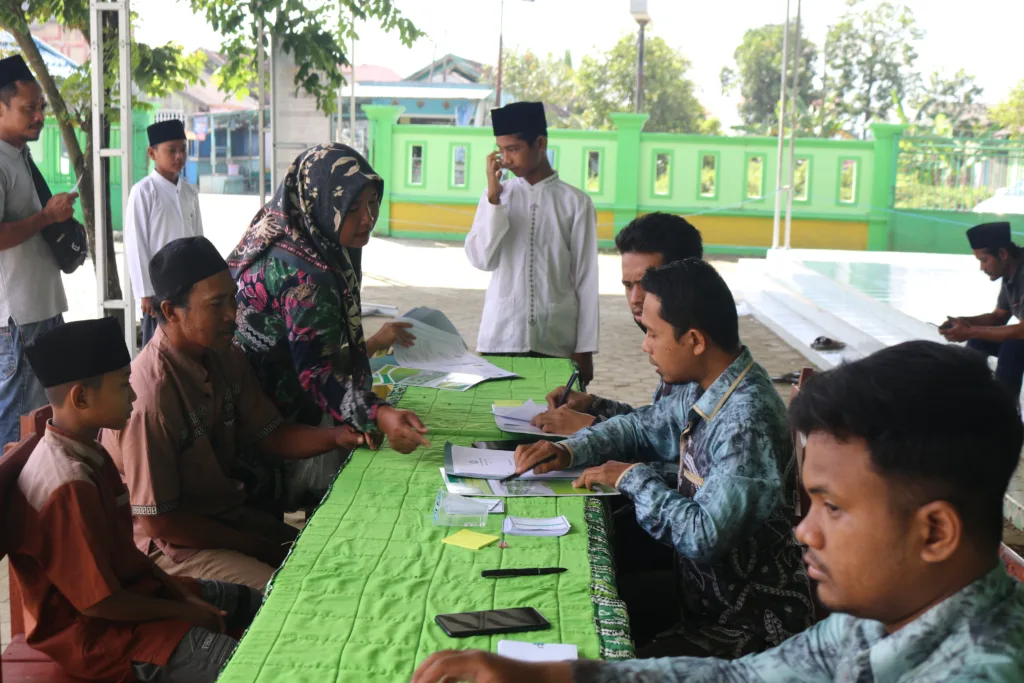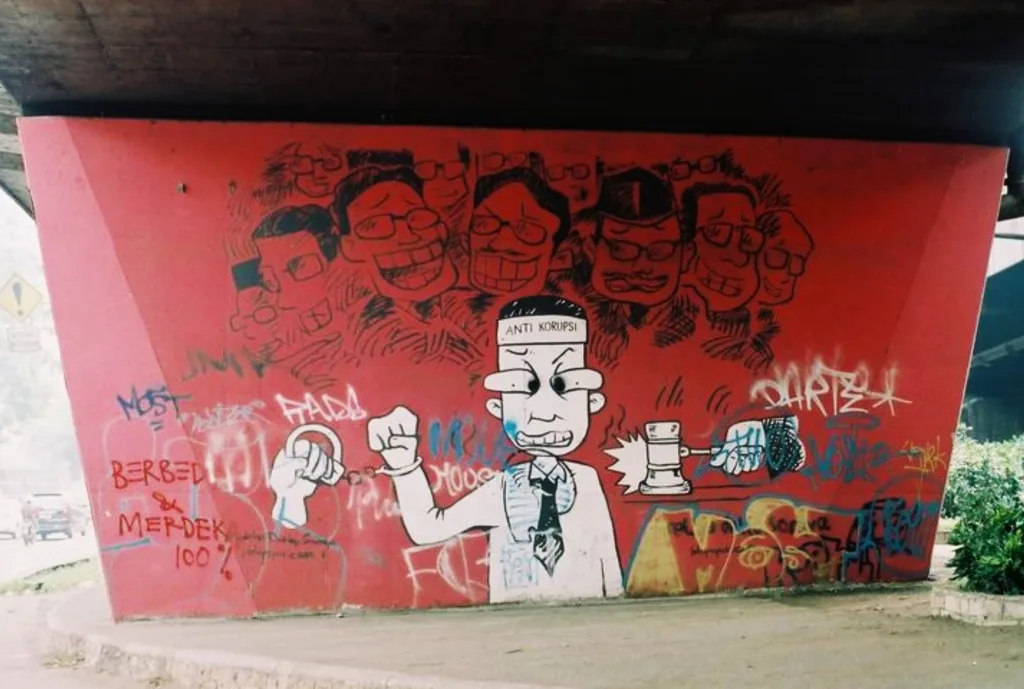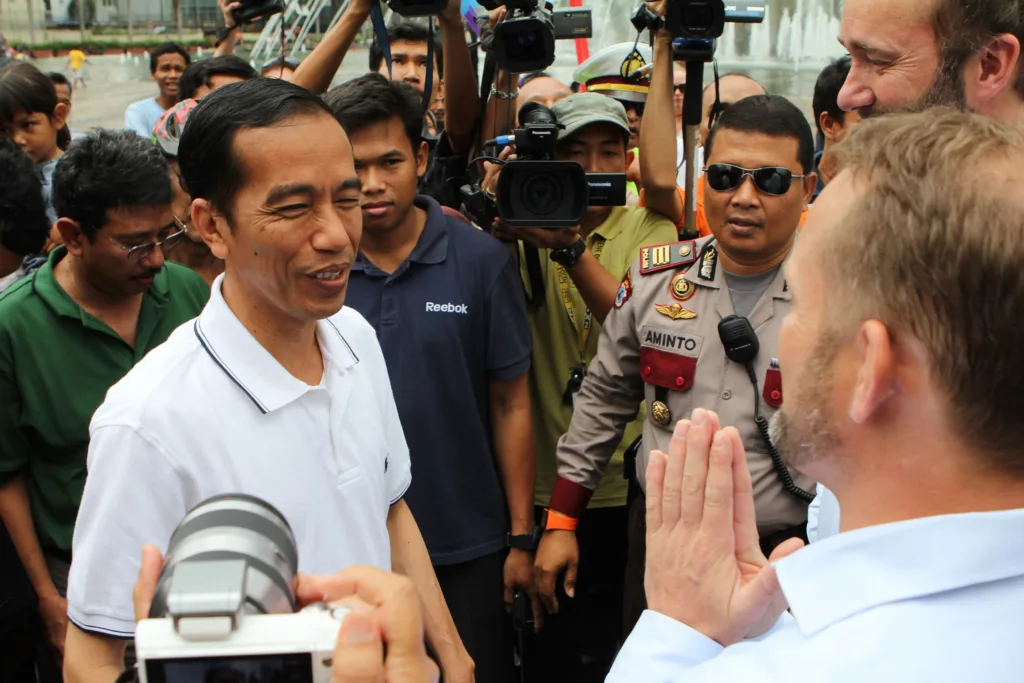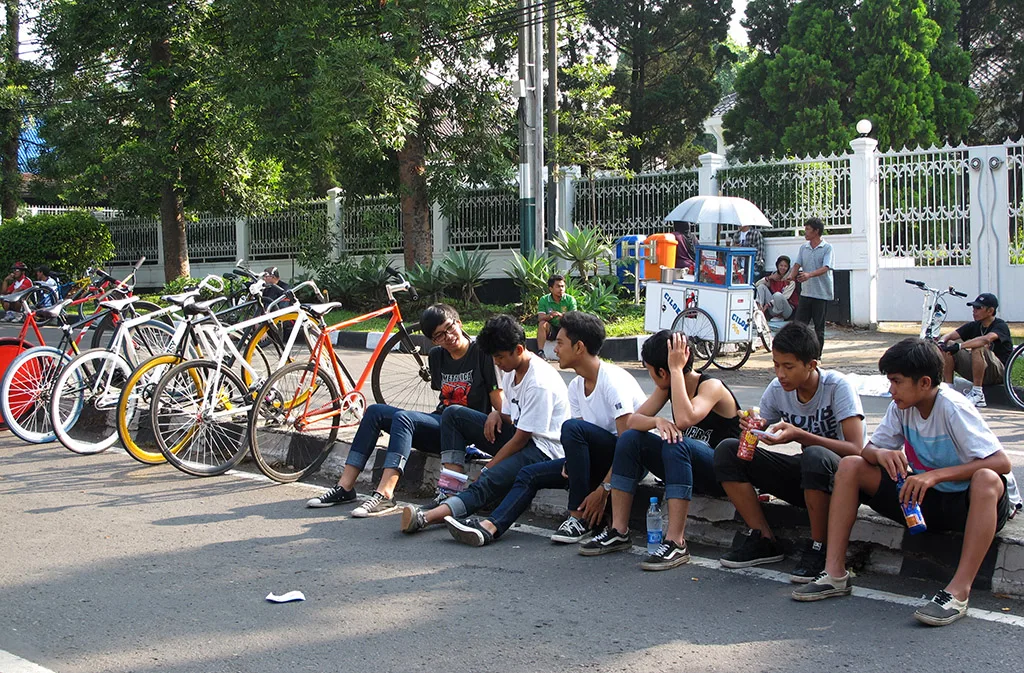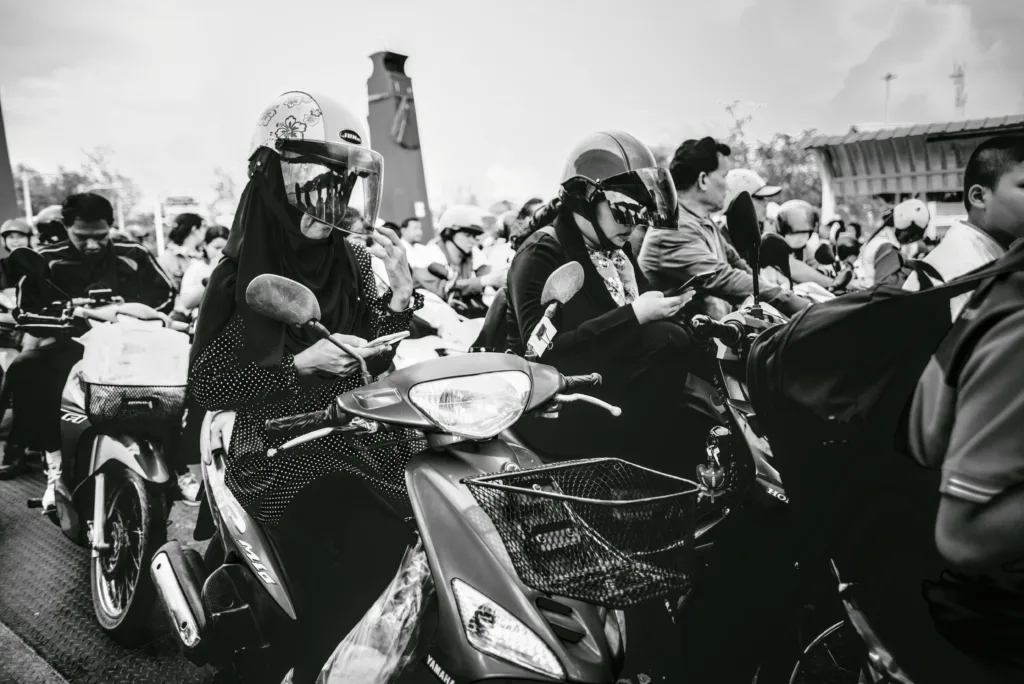We use cookies to improve your experience with Monash. For an optimal experience, we recommend you enable all cookies; alternatively, you can customise which cookies you’re happy for us to use. You may withdraw your consent at any time. To learn more, view our Website Terms and Conditions and Data Protection and Privacy Procedure.
Indonesia’s massive democracy love-in
Published on February 14, 2024More than 200 million Indonesians go to the polls on February 14, Valentine's Day.
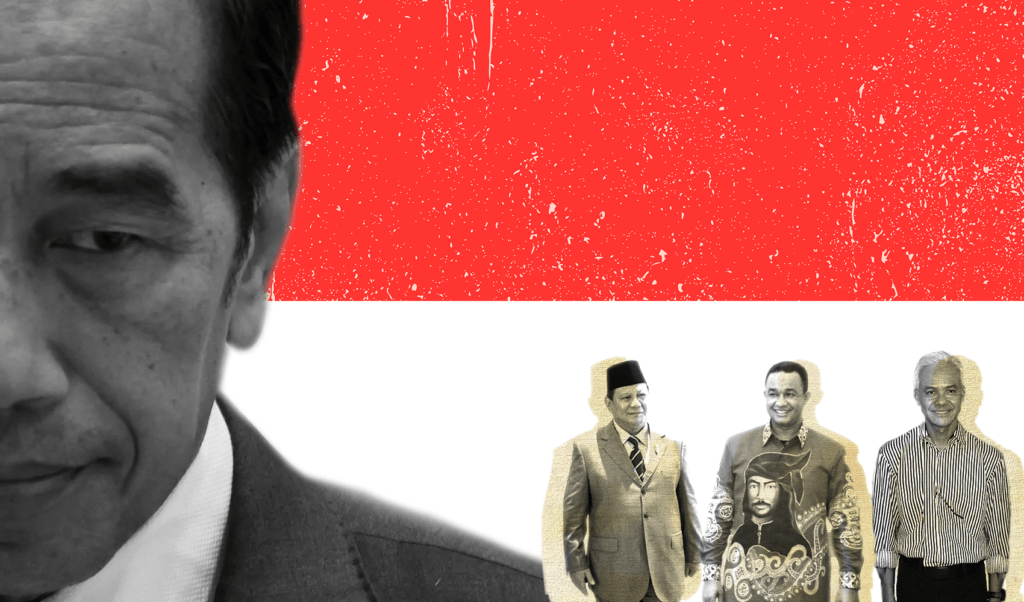 Indonesia election on February 14 2024 : Michael Joines, 360info CCBY4.0
Indonesia election on February 14 2024 : Michael Joines, 360info CCBY4.0
More than 200 million Indonesians go to the polls on February 14, Valentine’s Day.
Love is usually in the air on Valentine’s Day. For Indonesians this February 14, it’s a chance to show their love for democracy when they vote in elections to elect a new president and vice-president, as well as legislative members at national, provincial, and district level.
The numbers around this election are massive: There are more than 204 million eligible voters, more than 300,000 people from 18 political parties are contesting more than 20,000 seats in legislative bodies.
There are three pairs of candidates for president and vice-president.
One person who isn’t running this time is the current president, Joko Widodo. But that doesn’t mean he won’t have an influence on the result.
The idea of extending the president’s term had been circulated by Widodo’s team. The Indonesian Constitution only allows the president and vice president to serve two consecutive terms. Widodo wanted his term to be extended due to COVID-19. This was opposed by his own party.
Unable to run again, Widodo threw his support behind an old adversary, Prabowo Subianto, who he beat in 2014 and 2019. He justified this by stating that the president is allowed to support candidates who are running and the president may campaign although he is not running.
The installation of Widodo’s son, Gibran, as Prabowo’s vice-presidential running mate, despite not meeting Indonesia’s age criteria for candidates, is widely seen as an attempt to extend his influence beyond his own presidency.
The changing of this age rule, overseen by Widodo’s brother-in-law, triggered the dismissal of the chairman of the Constitutional Court. The controversial change led to the chairman of the General Election Commission and its commissioners being deemed as violating ethics by the Electoral Organisers’ Honorary Council.
This has sown doubt in the integrity of the election and raises doubts about the election results.
Indonesia is among the countries with a high level of distrust in elections. On top of that, many are concerned about the neutrality of the military and police as well as civil servants.
Regulations state that they should not favour any particular presidential or vice presidential candidates. However, behind closed doors, Widodo is using his authority to force them to support his son.
Another issue is the unusual dispersion of social assistance (Bansos) taken from the state budget.This is considered unethical and has sparked protests from various parties, including many leading universities.
Other concerns surround the increase in polarisation on social media, election logistics, female representation, and political bribery.
Widodo is trying hard to ensure this election is settled after one round because if it is held in two rounds (that’s if none of the three pairs of candidates reach 50 percent of the vote), Prabowo and Gibran are expected to lose.
If the election goes to a second round, Indonesia will learn how a government coalition can be formed.
Beyond the hustle and bustle of the presidential election, the legislative election is also a compelling issue because many legislative candidates from coalition parties are not campaigning for the presidential candidates. Indeed, candidates in remote areas are unaware the president’s son is running.
Younger people (under 40), who are estimated to make up 55 percent of the electorate this year, are sourcing most information on candidates via social media.
The candidates understand this well and invest significantly to secure votes. But are young voters impressed with the work of the current government?
Polls at the end of January, had Prabowo Subianto/Gibran Raka leading but not by much Anies Baswedan/Muhaimin Iskandar and Ganjar Pranowo/Mahfud MD are neck to neck.
There is no guarantee that the elections will take place in just one round. Indonesia’s love to hate politics could continues until June 26 for a second round.
This is a corrected repeat.



